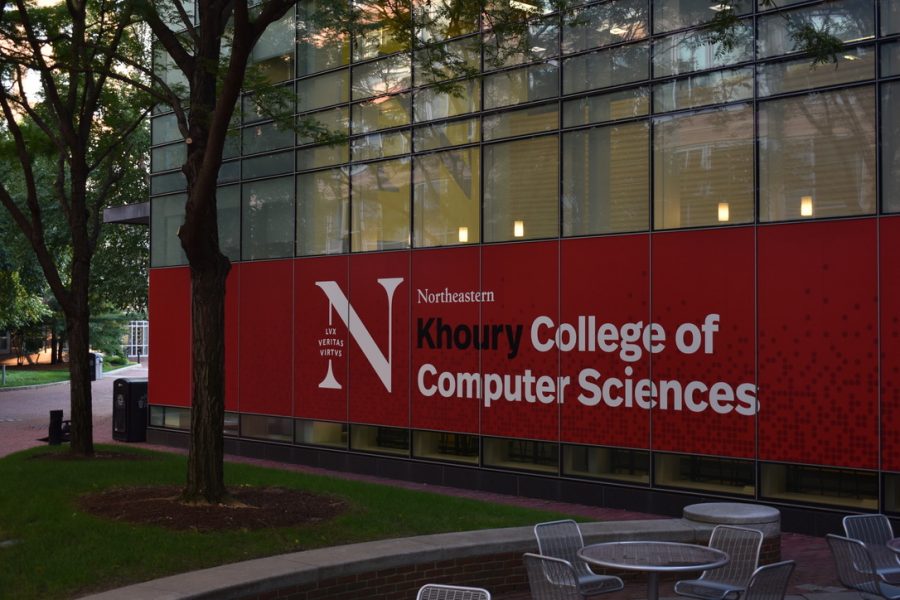NU enters global race for AI funding, talent
Students received zeros on their assignments and were in danger of failing the course if another instance of plagiarism was discovered.
October 23, 2019
Northeastern will allocate $50 million and hire as many as 30 faculty members for a new Institute for Experiential Artificial Intelligence, according to a university statement. The Institute, a proposed hub for human-focused artificial intelligence research, will join scores of other academic centers to compete globally for research funding and talent in the field.
NU’s decision comes a year after the announcement of a new college devoted to artificial intelligence, or AI, at the Massachusetts Institute of Technology. Backed by $1 billion, the MIT Stephen A. Schwarzman College of Computing launched in September and will address the ethical and societal implications of intelligent machines — a mandate similar to that of NU’s new institute.
Carla Brodley, dean of the Khoury College of Computer Sciences, said the Institute represents “an acknowledgement that AI touches every part of the university.”
Many of the Institute’s new hires will do research within Khoury College and the College of Engineering, but humanities-based AI scholars will also be recruited for areas such as the School of Law, Brodley said.
To win talent in this field, NU will compete not only with elite universities but also the world’s largest tech companies, which have already used outsized salaries to entice numerous researchers away from academia.
While Northeastern’s educational philosophy and academic plan largely revolve around the predicted impact of AI, the university has never had a standalone unit dedicated to its study. A number of public and private institutions from Illinois to Arizona have their own AI research centers, many with an interdisciplinary approach.
Stanford University — where the term “artificial intelligence” was originally coined — launched a similar institute for human-centered AI in March with support from tech industry titans, including the founders of LinkedIn and Yahoo.
The federal government has budgeted nearly $1 billion in AI research funding for the 2020 fiscal year. This total does not include classified funding for the Department of Defense.
During a recent Faculty Senate meeting, NU President Joseph E. Aoun hailed the Institute as a key part of the university’s plan to reach $300 million in annual research funding by 2025 and surpass the funding levels of rivals Princeton and Carnegie Mellon, which, like NU, lack research-heavy medical schools.
“We have to focus on areas of excellence, the latest being the Experiential AI [Institute],” Aoun said. “This has generated a lot of excitement across the board from humanities to chemistry.”
On Oct. 8, the National Science Foundation put out a call for proposals for a series of National AI Research Institutes with focus areas such as “trustworthy AI” and AI-augmented learning. The agency will back these institutes with $120 million — money for which Northeastern could compete.
Beyond government-funded research, the number of AI startups receiving venture capital investment has grown 500 percent over the last five years. In 2018, venture capital backers put a record $9.3 billion behind AI companies, and are on track to break that record this year.
While not in the startup business, the university has expanded its technology transfer office over the past year, which licenses faculty inventions to private companies and helps faculty turn inventions into companies of their own. According to its intellectual property policy, NU can collect 55 percent of licensing revenues on patents if inventors used significant university resources.
With a deluge of venture backing for AI, the Institute could present lucrative opportunities to commercialize research, especially for applications such as healthcare and transportation.
Brodley acknowledged the great potential for technology transfer and said she has a “rosy” outlook on overall funding and industry partnerships.
Ultimately, however, she said the institute represents a natural extension of the university’s real-world focus and public service ethos.
“We want to compete while staying true to who we are with use-inspired research,” Brodley said. “We want to impact the lives of people in a big way with AI whether it’s through climate, medicine or the sharing of information.”
Second-year computer science major Ameya Bhat said intelligent machines will not come without headaches for humans, but that centers like the Institute for Experiential Artificial Intelligence can be part of the solution.
“AI is phenomenal but it’s going to cause a lot of problems,” he said. “Addressing them early is our only hope of avoiding some of the pitfalls we run into every generation when new technology comes out.”


















